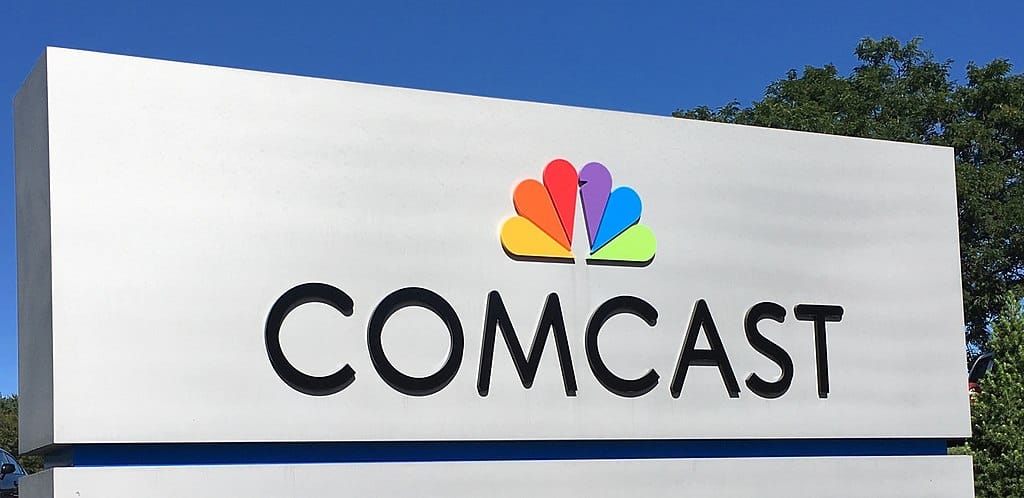Broadband Roundup: Comcast vs. Google, Sprint’s Open 5G Network, Ransomware Rises
Comcast is emerging as an antitrust foe against big tech companies such as Google, according to US News and World Report. Last month, Comcast’s video ads division FreeWheel accused Google of using privacy concerns as a pretext to limit FreeWheel’s ability to resell ads of its customers YouTube chann

Comcast is emerging as an antitrust foe against big tech companies such as Google, according to US News and World Report.
Last month, Comcast’s video ads division FreeWheel accused Google of using privacy concerns as a pretext to limit FreeWheel’s ability to resell ads of its customers YouTube channels.
This is the first time that a major company is taking sides in the antitrust battle against the world’s largest seller of online ads. However, Comcast’s concerns have not yet prompted a full-on antitrust attack on Google, although federal and state agencies are investigating the company regarding monopolization.
“FreeWheel would embrace a solution that allowed it to continue to meaningfully serve its clients when they publish their content on YouTube, as it had for over a decade on that platform,” Comcast said in a statement. “Unfortunately, the actions to remove or degrade FreeWheel’s capabilities on YouTube fall well short of that.”
Most companies that contend Google has unfairly squeezed them out have been reluctant to say so publicly because they rely on services from Google and fear retaliation. But Comcast is one of the biggest spenders of dollars for federal and state lobbying.
The House Judiciary Committee, U.S. Department of Justice and a coalition of 50 state-level attorneys general have each asked Google for information about its ads business in recent weeks as they begin investigating potential violations of antitrust law.
Google declined to comment on Comcast’s recent actions but said it continues to cooperate with investigations.
Sprint opens its 5G network to MVNOs
Sprint has opened its 5G network to mobile virtual network operators, FierceWireless reports. The carrier currently has 5G networks in nine US cities and turned up MVNO use in Chicago in mid-September.
Sprint’s goal is to have all nine cities available for MVNOs by the end of October, according to a company spokesperson.
Sprint had already announced plans to expand its MVNO partnerships with some larger providers to include 5G. That includes Google Fi, which Sprint said in late February would be an early adopter of the carrier’s mobile 5G technology that uses 2.5 GHz spectrum and Massive MIMO radio technology.
Allovi Wireless, a Sprint MVNO, in late August said 5G mobile data would “soon be available” on its month-to-month cell phone plans.
In its August report on prepaid competition, Wave7 Research also flagged Gen Mobile, another Sprint MVNO, as one that has access to Sprint 5G, and is currently developing a 5G strategy.
“We’re really pleased to support all those [existing MVNO agreements],” said Mike Sievert, president and chief operating officer at T-Mobile. All existing MVNO agreements from both companies would be inherited after the T-Mobile-Sprint merger and carry forward through their various expiration dates, with the potential to extend.
“The massive capacity that we are creating with this new network creates the incentive for us to want to be a provider to MVNOs,” Sievert added.
Ransomware attacks hit hundreds of schools and school districts
Over 500 US schools have been hit by ransomware in the last nine months, ZDNet reported. According to cyber security firm Armor, 15 school districts, accounting for over 100 schools, have been attacked within the past two weeks.
Of these 15 ransomware incidents, Armor said that five were caused by the Ryuk ransomware, one of today’s most active ransomware strains/gangs.
Overall, Connecticut’s educational institutions were the most compromised by ransomware attacks this year. In Louisiana, Governor John Bel Edwards declared a state of emergency this past July in response to a wave of ransomware infections that hit three school districts.
The Armor report does not go into details of what districts paid the ransom demand and which did not. However, Crowder College of Neosho, Missouri, reported receiving the highest ransom demand among all school districts, with hackers requesting a whopping $1.6 million to provide the district with means to decrypt its systems.
Another antivirus maker, Emisoft, claims that ransomware incidents have impacted the operations of 1,051 individual schools, colleges, and universities, more than double the number reported by Armor.
In response to these attacks, the Senate passed the Department of Homeland Security Cyber Hunt and Incident Response Teams Act. The bill would create incident response teams to help private and public entities defend against cyber-attacks, such as ransomware attacks.










